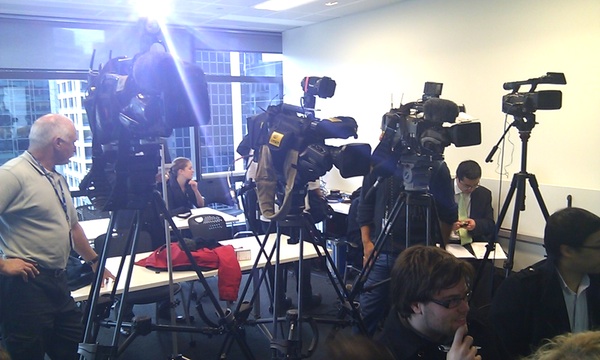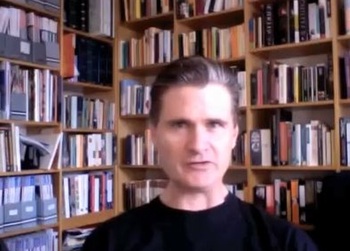[Update 22 July 2010: I failed to update my brain. The Standing Committee of Attorneys-General postponed their meeting thanks to the federal election. If only I’d re-read their website. Still, this means there’s now plenty of time to make the point.]
The other day, communications minister Senator Stephen Conroy called for a review of Refused Classification material online, something I called his “filter masterstroke”. With the Standing Committee of Attorneys-General due to meet in Perth tomorrow and Friday on 4 and 5 November 2010, I’m calling for them to review the whole classification system — not just online and not just RC.
Here’s what I just sent the NSW Attorney General, John Hatzistergos MLC (pictured):
The Hon John Hatzistergos MLC
Attorney-General of New South Wales
GPO Box 5341
Sydney NSW 2001Fax +61 2 9228 3600
Review of Refused Classification
Dear Minister,
As you will be aware, Senator Stephen Conroy, Australia’s Minister for Broadband, Communications and the Digital Economy, has recommended that the Standing Committee of Attorneys-General review that category of online content called Refused Classification.
I urge you and your fellow Attorneys-General to extend that into a full review of the classification system, not just for the internet but for all media.
In brief, Australia’s classification system is currently an inconsistent mess. I doubt that it accurately reflects the mature, tolerant and robust Australian community standards of the 21st Century. Simply put, such a review is long overdue.
Irene Graham has documented in detail the state of Refused Classification in Australia at http://libertus.net/censor/isp-blocking/au-govplan-refusedclassif.html and it is clear that over the years the RC category has been extended in an ad hoc manner to include material well beyond the governments’ original intentions — in many cases without reference to parliaments, let alone to the people.
Looking through the rest of Ms Graham’s site, it is clear that for the last decade, and perhaps longer, more attention has been given to the views of vocal minority groups rather than to the peer-reviewed social research that is available. This must change.
It is also clear that many decisions have been made on the basis of content being perceived as “offensive” to people’s tastes, rather than any demonstrable risk of harm. It simply is not the government’s place to legislate on matters of taste.
Finally, this is the age of media convergence. It is ridiculous to have different classification standards for the same video material, for example, depending on whether it is delivered via broadcast television, a DVD in a shop or via the internet.
In no way should any of this be seen as wishing to relax the laws relating to criminal material such as child abuse material. But that is a matter for criminal law, not classification.
If you require any further details, please do not hesitate to contact me.
Stilgherrian
cc: The Hon Carmel Tebbutt MP, Member for Marrickville
It’s all very last-minute, but I reckon a lot of phone calls, faxes and emails to your state Attorney-General wouldn’t go astray.





![Labor's Plan for Cyber Safety (November 2007): click to download [61kB PDF]](https://stilgherrian.com/wp-content/uploads/2010/06/labors_plan_for_cyber_safety_75w.jpg)
